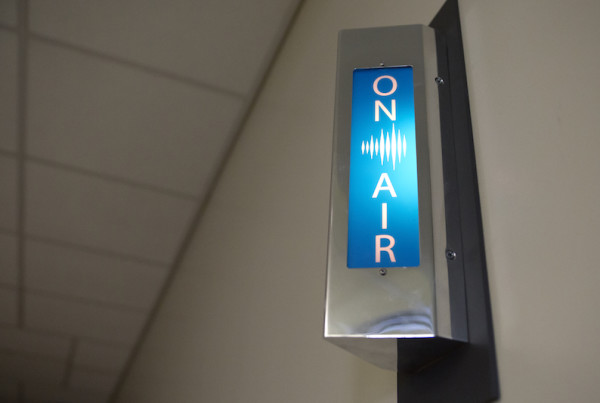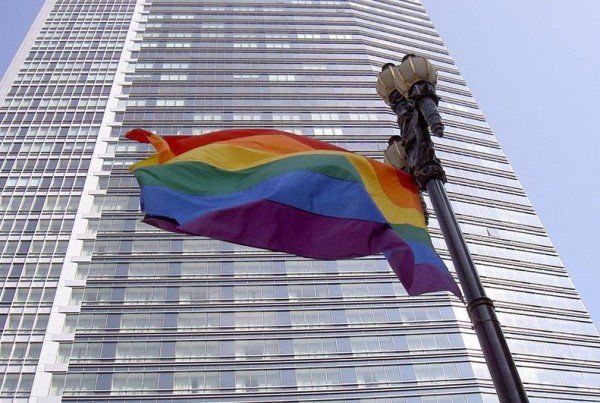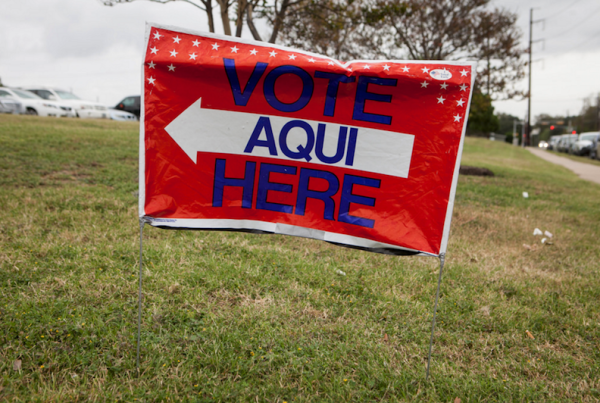On Tuesday Lt. Gov. Dan Patrick suggested his support for Texas lawmakers to take up the issue of so-called bathroom bills: “I think the handwriting is on the bathroom wall: Stay out of the ladies’ room if you’re a man.”
As a Texan, you may be thinking – haven’t we been down this road before? If you live in and around Houston, you might recall this TV ad that ran last fall.
“We’re all working hard to make Houston a better place. When we step back, the Houston Equal Rights Ordinance is really about giving all our neighbors a fair shot – where people are judged by how hard they work, where my neighbor can’t be fired because he served in the military, because she’s getting older, where families with kids aren’t denied apartments, and where no one is denied entrance because of the color of their skin. Nobody in Houston should face discrimination.”
Well, it wasn’t really a bathroom ordinance per se – it was formally known as the Houston Equal Rights Ordinance, HERO for short. The measure, which went to voters in November 2015, would have extended a wide range of protections in the Bayou City to Houstonians of all identities. In the run up to the vote, officials warned a defeat would have serious consequences for a city hosting the Super Bowl, the NCAA finals and other events on the national stage.
But the HERO ordinance was defeated, something that supporters argued would be bad for business. Outgoing Houston Mayor Annise Parker said on the night of the bill’s defeat:
“I fear that this will have stained Houston’s reputation as a tolerant, welcoming global city. And I absolutely fear there will be a direct economic backlash as a result of this ordinance going into defeat.”
So what’s happened in the five months’ since HERO’s defeat? Lou Weaver, statewide transgender programs coordinator for Equality Texas, says one reason the city hasn’t seen an economic backlash is that the Houston stayed status quo.
“We did not have a civil rights ordinance to begin with,” he says, “and we still don’t.”
In North Carolina, Weaver says the state bill was in response to a Charlotte city ordinance that protected LGBT people from discrimination. Another difference between the North Carolina law and the Houston ordinance was the Houston’s was a voter referendum.
“It’s hard to go against what the people say,” Weaver says, “versus, it’s a different thing when you’re just talking about lawmakers who held a special 24-hour session to ram this through. I think those are two very different situations.”
The characterization of the HERO ordinance as a “bathroom bill” may have influenced North Carolina lawmakers, because Texas is seen by some as a “testing lab” for policymaking.
“People watch what happens here in Texas and they try and replicate it,” Weaver says. “Through the repeal efforts of HERO, they were able to use their most hateful rhetoric that they had developed to repeal this and they copied that rhetoric and took it to North Carolina to accomplish what they did.”
Weaver says advocates battled at least twenty anti-LGBT bills in the 2015 Legislature and, especially given what happened in North Carolina, they expect a similar battle in 2017. A statewide list, Texas Competes, notes businesses that the site says support a state that’s welcoming of all people, including several of Texas’s Fortune 500 companies like Dell, Texas Instruments, Whole Foods and Southwest Airlines.
“What has happened in North Carolina would be very bad for Texas business,” Weaver says. “It’s going to have same economic ramifications, and on a larger scale…. These people care about what’s happening in Texas.
Web post prepared by Hannah McBride.
















